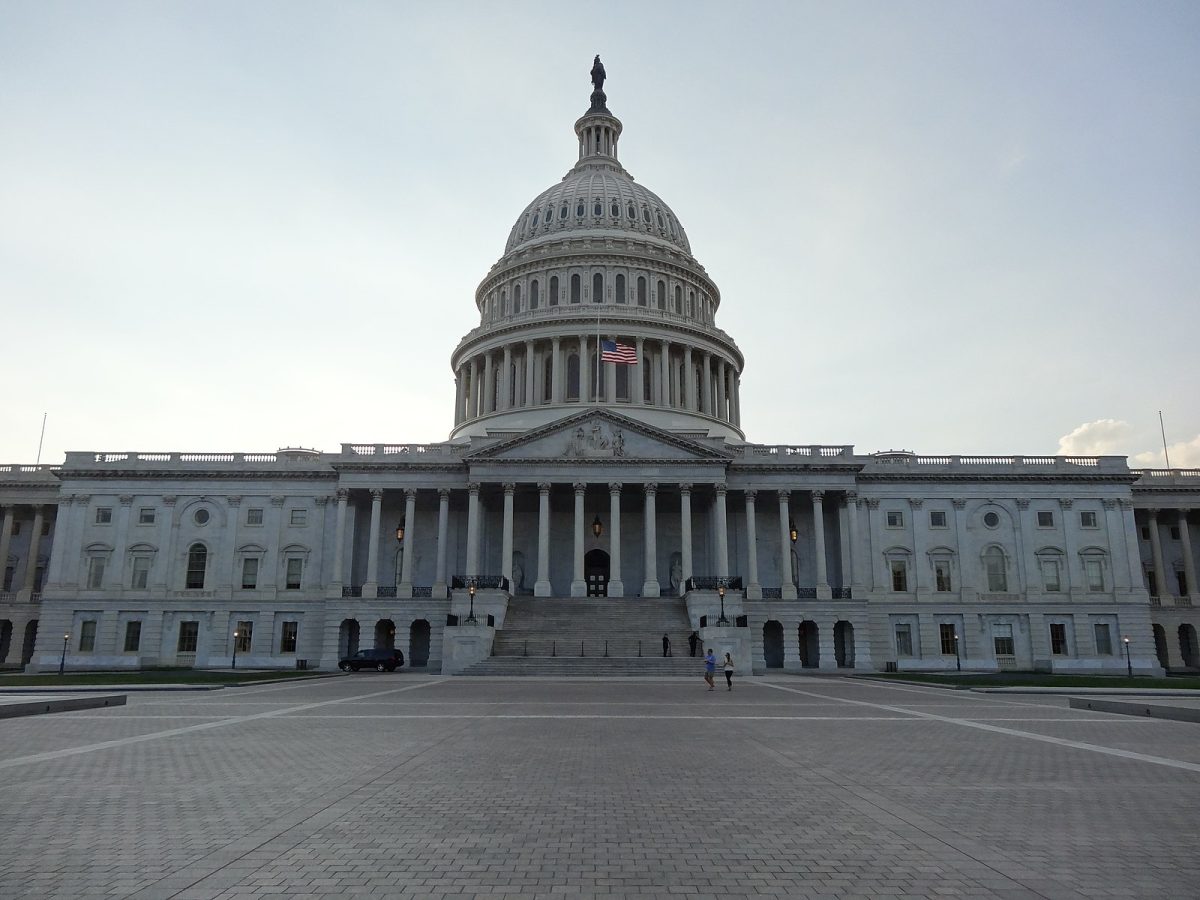During the months since President Donald Trump came into office, there has been increasing uncertainty around diversity, equity and inclusion (DEI) among the American people. From executive orders to a slew of information on social media, one concern is the impact to students with disabilities on campuses around the country.
The American Disability Act (ADA), grants all people with disabilities the right to necessary accommodations and services. The ADA additionally prohibits public discrimination on the basis of a disability. However as the political climate remains uncertain, there are questions about how accommodations and services could be affected or changed for students with disabilities at Dickinson College.
The accommodations and services students receive from Access and Disability Services (ADS), are an important resource contributing to student success. Although there is no confirmed decision for alterations on Dickinson’s campus, The Guardian reports, “the Department of Justice, which is charged with enforcing the [ADA], began to rescind key guidance, justifying the move by suggesting that accessibility is the reason for cost-of-living increases.”
Marni Jones, director of ADS, said not only would this be impacted but additional accessible resources as she said, “Its weakening could result in fewer resources dedicated to upholding disability rights, leaving individuals more vulnerable to discrimination without adequate legal recourse.”
By altering the ADA it allows for additional changes despite progress as The Hill said, “Despite its shortcomings, the Americans with Disabilities Act has made a tremendous difference for many Americans.” However it is unclear what effect any changes would have for students with disabilities in the future, as Patrick Rafferty ’26 said, “Nothing directly affected me yet.”
Whether it’s accommodations or individual rights on disability, a lot of questions remain up in the air as the nation’s progression is threatened. John Joyce, ADS accommodations director since 2020, discussed the accommodations in place for students on campus although the numbers have been stable since becoming involved with ADS, “Typically around 20%-25% for the last 5 years.”
However, the future of disability rights for students at the federal level remains unanswered. During the interview, Joyce said, “Most students who have accommodations have academic accommodations.” Responses on the types of accommodations colleges and universities rely on funding for are unclear.
In an interview with a member of Class of 2028 who asked to remain anonymous said, “ADS could have clearer instructions on what to do. Additionally, the political climate could impact universities and colleges through funding cuts, which includes disability as a part of DEI. Funding cuts also push confusion around future ease of accessibility on campus.
Besides accessibility, accommodations are an additional factor as Joyce says, “Being a small school, our office can be impacted depending on what kind of accommodation weather typical compared to specialized accommodations.” Additionally, the amount of students who require accommodations, such as specialized housing to general academic accommodations factors in the impact on ADS.
Due to the variety of accommodations, Rafferty said, “Everyone’s very accommodating. Professors always ask what I need.” However, it adds another undetermined factor of ensuring equal access for all students with a disability.
Inquiry on accommodations for students show many of the same unresolved questions around the future of accessibility on campus and rights students with disabilities have. Rafferty, who has a genetic disorder called Holt-Oram syndrome says, “ADA is always very helpful, I never feel awkward asking for help or their opinion on things.”
Although ADS is under federal law, Joyce said the many unknowns under the Department of Justice can impact us. Considering the changes the DOJ already made to the ADA, it creates more questions on how additional possible alterations to the ADA can impact students with disabilities on campus.
In addition to the DOJ, another problem for ADS are the federal job losses as Joyce said, “Our office exists in accordance with federal law. Staff being cut could impact the government’s ability to help.”
However as the feeling of unpredictability continues to spread and, the threat to negative changes targeting accessibility for students with disabilities on campus, Jones said, “While we can’t predict exactly how current or future executive actions might affect higher education, significant changes to the Department of Education or disability-related regulations could potentially influence funding, the enforcement of civil rights laws like the ADA and Section 504, or support programs.”
Regarding the services ADS provides under ADA, there is no confirmed risk as Joyce says, “It doesn’t necessarily impact services but the uncertainty is still there.” As details regarding accessibility remain unclear, Rafferty said, “Stay aware of everything happening. Keep an open mind and keep politics out of what I’m doing.” ADS also ensures all students with disabilities have equal access on campus as Jones said, “ADS and the college remains committed to supporting equity, inclusion and access for all students and celebrating Dickinson’s rich diversity (including physical and neurodiversity).”
While the current political climate is undetermined for the future of DEI, disability specifically, anonymously said, “I think there’s a possibility, for some it could definitely be harder but I feel at Dickinson we’d probably be okay.”
Jones said even as the future remains murky, ADS and Dickinson are committed to maintaining its diversity. Considering the position DEI is put in, Jones says, “ADS will not waiver in its commitment to addressing the access and accommodation needs of Dickinson’s students.”






